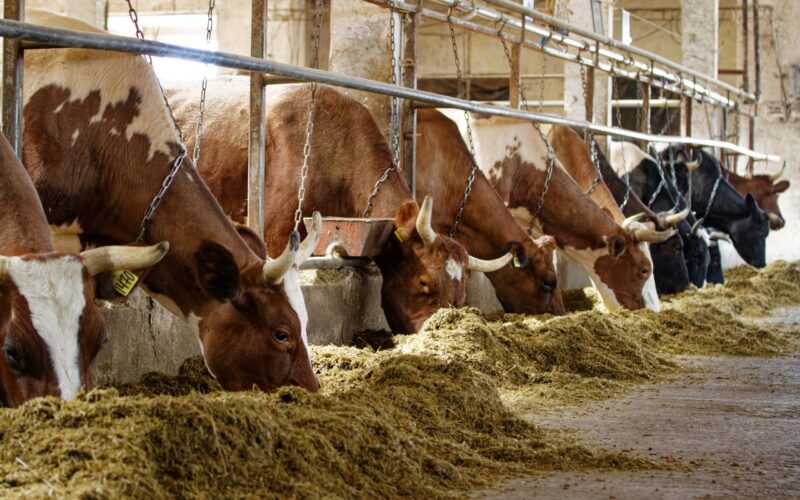The US Food and Drug Administration (FDA) has approved a feed ingredient, prepared by Elanco Animal Health Incorporated, that reduces methane in lactating dairy cows. This will not just help in methane reduction but also help dairy producers get paid through voluntary carbon markets.
Elanco Animal Health Incorporated announced the FDA has completed its comprehensive, multi-year review of Bovaer® (3-NOP), a first-in-class methane-reducing feed ingredient, and determined the product meets safety and efficacy requirements for use in lactating dairy cattle.
“This monumental announcement has the ability to accelerate the opportunity for climate-neutral dairy farming while creating a new revenue stream for dairy farmers across the country,” said Jeff Simmons, President and CEO, Elanco Animal Health.
He added, “We appreciate the FDA’s commitment to maintaining high standards for science-based review while balancing the need to quickly bring solutions to the market. As global temperatures breach new thresholds, consumers demand more sustainable products and the farm economy battles profitability challenges, we are excited to bring Bovaer to the market as a potential solution. Bovaer will create value for farmers while helping food companies meet consumer demands and deliver on their sustainability commitments. As animal, human and now environmental health continue to converge, Bovaer is one of the most significant innovations that considers this intersection and provides consumers, farmers and society what they want for our future.”
In a press note, Elanco informed that the feed additive works by suppressing the enzyme in the cow’s rumen that forms methane. Feeding one tablespoon of the additive per lactating dairy cow per day can reduce methane emissions by about 30% or about 1.2 metric tons of carbon dioxide equivalent (CO2e) emissions annually while creating an opportunity for dairy farmers to be financially rewarded for reducing their dairy’s carbon footprint. Feeding one million cows with the feed would reduce emissions equivalent to removing more than 285,000 cars from the road for a year.






















